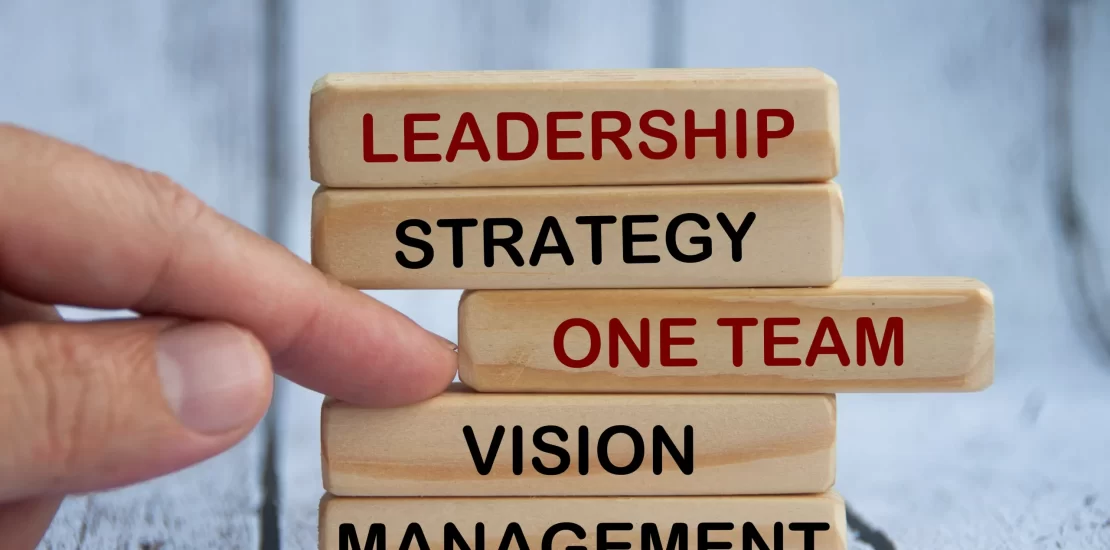What truly separates a boss from a great leader? It’s not just the ability to manage spreadsheets or hit KPIs, it’s the human touch. In today’s people-driven workplaces, leadership is no longer about giving orders; it’s about inspiring action, navigating change, and connecting authentically with others.
Whether you’re a student stepping into your first leadership role or an aspiring manager ready to level up, technical know-how will only get you so far. The real game-changer? Soft skills are the interpersonal abilities that build trust, resolve conflict, and motivate teams to thrive.
At ANIM, we know that future leaders must master more than business models; they need emotional intelligence, empathy, and communication savvy. So, what exactly are the most important soft skills for leaders today? Let’s dive into the top 10 soft leadership skills every future manager should cultivate:
Top 10 Soft Skills for Leadership Every Manager Should Have
Leadership isn’t just about job titles or technical expertise, it’s about how you engage, inspire, and bring out the best in people. As future managers and leaders, students in business, leadership, and management programs must not only master strategies and systems but also develop the soft skills that fuel real-world impact.
At ANIM, we emphasise the importance of interpersonal and emotional intelligence alongside academic learning. Our Diploma of Leadership & Management is designed not only to equip you with strategic knowledge but also to sharpen the leadership and management skills that define successful leadership.
1. Emotional Intelligence (EQ)
Emotional intelligence is the ability to understand and manage your own emotions while recognising and influencing the emotions of others. It includes self-awareness, self-regulation, motivation, empathy, and social skills.
Why it matters in leadership:
Leaders with high EQ can better navigate team dynamics, handle pressure, and foster a positive work environment. They are more effective at resolving conflicts and building trust across teams in an organisation.
Practical tip:
Practice self-reflection and seek feedback regularly to improve emotional awareness and empathy.
2. Communication
Communication goes beyond simply giving instructions. It involves active listening, articulating ideas clearly, adjusting tone and message for different audiences, and providing constructive feedback.
Why it matters:
Effective communication ensures that team members understand their roles, expectations, and the bigger picture. It fosters collaboration and prevents misunderstandings.
Practical tip:
Engage in group discussions, presentations, and role-playing exercises to sharpen both verbal and non-verbal communication skills.
3. Adaptability
Adaptability is the ability to adjust to new challenges, environments, or expectations. With fast-paced technological changes and evolving business landscapes, adaptable leaders are more resilient and resourceful.
This is one reason why learners often compare online vs on-campus leadership and management programs, flexibility can shape not only how you study, but how you lead.
Why it matters:
Adaptable managers are open to feedback and innovation. They respond proactively to change and can guide their teams through transitions with confidence.
Practical tip:
Expose yourself to new experiences and take on varied roles in project management to build flexibility and problem-solving skills.
4. Empathy
Empathy is the capacity to understand or feel what another person is experiencing. It plays a crucial role in creating inclusive, respectful, and compassionate workplace cultures.
Why it matters:
Great leaders foster deeper connections with their team members. This leads to higher employee satisfaction, lower turnover, and a stronger team dynamic.
Practical tip:
Engage in active listening and try to see situations from others’ perspectives before making decisions.
5. Active Listening
Active listening is a communication technique that requires full concentration, understanding, response, and memory. It involves more than hearing, it means being fully present and responsive.
Why it matters:
When leaders actively listen, they show respect and openness. It helps uncover valuable feedback, ideas, and concerns from team members.
Practical tip:
Avoid interrupting and summarise what others say to ensure understanding. Maintain eye contact and provide verbal or non-verbal feedback.
6. Conflict Resolution
No team is immune to conflict. The skill lies in managing disagreements constructively without damaging relationships. Effective leaders need to remain calm, impartial, and solution-focused.
Why it matters:
Effective conflict resolution promotes a healthy work environment. It encourages transparency, mutual respect, and stronger team cohesion.
Practical tip:
Learn mediation techniques and practice staying neutral. Focus on common goals and facilitate open conversations during disagreements.
7. Decision-Making
Good leaders are decisive. They gather relevant information, consider alternatives, consult where appropriate, and make informed choices with confidence.
Why it matters:
Strong decision-making is key to strategic leadership. It demonstrates clarity of thought, confidence, and the ability to take responsibility.
Practical tip:
Use tools like SWOT analysis or decision matrices in project work to evaluate options methodically.
8. Delegation
Delegation involves assigning responsibility to others while providing support and maintaining accountability. It’s not about offloading tasks, but empowering others.
This ability becomes particularly important in roles explored through career pathways for Diploma of Leadership and Management graduates, where operational efficiency and team trust go hand in hand.
Why it matters:
Delegating effectively develops your team’s capabilities and allows you to focus on high-priority leadership tasks.
Practical tip:
Assess team members’ strengths and interests before delegating. Set clear expectations and check in regularly.
9. Positive Attitude
A leader’s attitude sets the tone for the entire team. Optimism and enthusiasm can be powerful motivators, especially during challenging times.
Why it matters:
A positive mindset helps maintain morale, encourages resilience, and inspires a can-do spirit in the workplace.
Practical tip:
Practice gratitude and celebrate small wins with your team. Stay solution-oriented even when setbacks occur.
10. Time Management
Time management involves planning and organising tasks to make the best use of available time. For managers, it’s essential for maintaining productivity and meeting goals.
Why it matters:
Good time management improves efficiency, reduces stress, and enhances reliability. It also sets a strong example for team members.
Practical tip:
Use digital tools like calendars, project boards, or time trackers. Prioritise tasks using methods like the Eisenhower Matrix.
Also read: Top 27 Must-Have Project Management Skills for Project Managers
Integrating Soft Skills into Your Leadership Journey
At ANIM, we encourage students to apply leadership soft skills in real-world contexts through group projects, internships, and leadership simulations. Our Diploma of Leadership & Management provides more than just theoretical knowledge. We embed soft skills training into the learning experience through:
- Group projects and case studies that simulate real-world workplace dynamics
- Leadership simulations and peer feedback sessions to build emotional intelligence and adaptability
- Work placements and internships that provide hands-on practice in time management, delegation, and communication
- Workshops and coaching focused on conflict resolution, decision-making, and self-awareness
Our curriculum blends theory with practice to ensure you graduate not just with knowledge, but with the human skills that set outstanding leaders apart.
Final Thoughts
True leadership isn’t about commanding attention, it’s about earning respect, fostering growth, and leading with intention. These top 10 essential soft skills aren’t just buzzwords; they’re the heart of effective, modern leadership.
By actively developing emotional intelligence, communication, adaptability, and more, you’re not only preparing yourself to manage teams, you’re setting the stage to inspire them.
At ANIM, we don’t just teach leadership. We help you live it through immersive experiences, real-world applications, and personal development that transform your mindset and career path.
Ready to lead with purpose and confidence?
Explore our leadership and management programs today, and start building these essential soft skills for effective leadership that make great managers unforgettable. Contact us!



